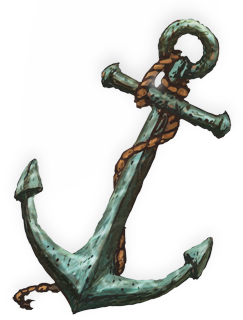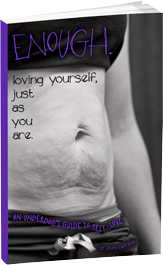If you’re anything like me, I had heard the term “codependent” hundreds of times.
Whenever I’d hear that word, I’d picture two people who neeeeeeeeeeed each other, like a pair of mutually parasitic leeches sucking the life out of one another, “plus drama.”
Thelma and Louise, driving off a cliff.
[how powerful and profound. i almost forget they’re driving off to kill themselves.]
Romeo and Juliet, as she stabbed herself while clinging to his lifeless body.
Two weak, whiney, teenage kids making sad, crying suckface with each other, covered in emo makeup, grasping black fingernailed hands.
“I can’t live without you, I LOVE YOU SO HARD that I have to kill you and then kill myself. I DIE ONE THOUSAND TIMES”
Me, to myself: “Lame. No way I’m THAT. I’m stronger than that. I’m independent and smart. No way, no way.”
In 2014, I found a therapist. I was fighting my way back from rock bottom, recovering from addiction, and healing from a marriage that uprooted truckfulls of rotting garbage when divorce yanked it from my life.
At the time, I was pretty proud of myself for seeking help. Now I think, “omg DUH, mental garbage all over the furniture, I needed a crew of help.”
I was SO ANGRY, and nothing I did made the frustration or rage any less.
At my very first therapy session, I asked my therapist “What do I do about my ex? I’m okay with the divorce (at the time I think I finally was), but he won’t take responsibility for his life NOW. He won’t get a job, he’s not paying support, he attempted suicide, and I’m left to pick up the pieces.”
I talked for almost a full hour about his shortcomings. Not very often am I in a position to unload or vent to an appropriate audience, and I was determined to get my hour’s worth. I also wanted to be honest, because honesty is the first step to recovery.
I ranted. I raged. I verbal-diarrheaed all over my poor, new therapist for 45 minutes, then I finally stopped for breath.
Me: “I just want him to be different.”
Inside the awkward, empty silence that followed, my therapist cleared her throat, blinked in a humored way, and asked me her first question of the visit.
Her: “Do you know what it means to be codependent?”
Me: “……………..NO. WHY.”
(Remember my mental image of the term? Yeah. I didn’t want to be THAT.)
She didn’t spend too much time talking about the concept (I had burned through an entire hour with my complaining and it was time to go), but she assigned me a book to read. Codependent No More by Melody Beattie was added to my Amazon cart in short order, and within a week I had finished reading it.
I thought the divorce and subsequent therapy session were hard, but READING THAT BOOK WAS THE MOST MENTALLY DIFFICULT WEEK OF MY LIFE.
Codependence, as outlined by Beattie in her book, is defined as “a person who has let another person’s behavior affect him or her, and who is obsessed with controlling that other person’s behavior. A codependent reacts or overreacts, but rarely ever acts [on their own accord].”
“Uuuuuuugh…. and DAMNIT.”
It was a slap in the face, but I realized that I wanted to control my ex. I wanted him to be someone different, so that he would be happy, so I could be happy. I figured that if HE changed, I wouldn’t have to. If he acted differently, if he became someone else, if he wanted different things, I wouldn’t have to give up what *I* wanted in order to live a happy life.
I defined my own, personal brand of codependence as this:
I do not think my own thoughts without checking with someone else to know that they’re okay. I do not ask for things from others because I don’t want to put them out, and I suffer and go without in order to make sure everyone else is happy.
In practice, that means “I come last.”
It means “I get what’s left at the bottom of my own bucket, after I serve everyone else out of it.”
It means “I’m so happy with this awesome news,” until the person I looked to for emotional fulfillment told me “that’s dumb,” and I was devastated.
It means “I couldn’t do that, think that, or say that because my parents, husband, family, and friends would be so upset,” even though I was a grown ass adult.
For me, I was hugely, extremely, sickeningly dependent upon my mother and my sister, as well as my father and my spouse. Like an opiate addict needs a fix, I needed their approval.
When my sister and I went out, I did not wear clothes that she did not like. She dresses like an advertisement in Cosmo. I dressed out of the dumpster (not kidding, my favorite pair of pants of all time I found while dumpster diving). I suffered physical discomfort in clothes I didn’t care for just to make her happy.
I saved up to buy new clothes. My sister went with me. Out of the 20-ish items I purchased, just one was something I really liked. The rest I bought just so my sister would approve of my appearance. I still have some of those jeans and pants in my drawer, worn less than two times each.
I tried to wear girly things so my mom and my sister would like me more. They liked earrings and bracelets and necklaces, so I bought them and wore them even though they drive me nuts. I like boy watches and clunky paracord bracelets and leather wrist cuffs, but I didn’t wear them when my sister or mom would see them.
I got married in a church because my mom said she would be disappointed if I didn’t. (I was 22.) I wanted to get married in the woods, barefoot and secret, like William Wallace in Braveheart.
I got married to a man that I was not ready to marry because my parents said “no shacking up.” I made a commitment that I was not ready to make, because “that’s what you do, or our parents won’t like it.”
I stayed married for 8.5 years AFTER the cheating started, because “divorce is shameful.” (even though my dad is divorced, and even though I was living a lie. which is ALSO shameful.)
I wanted to be a teacher. My dad said “teachers are one step above car salesmen. Get a job that makes you money.” I enrolled at UW and went pre-med.
I joined a sorority in college because my mom and my sister both told me “you are so hard to love, you don’t have any friends, I feel sorry for you, join a sorority so you can get some friends.”
I bought small frame glasses even though I liked the big, thick librarian frame glasses, because my sister told me “you can’t pull those big ones off, your face is shaped too thin.”
I starved and purged to stay thin, because my mom told me how gross she was for gaining weight, and my dad agreed with her. My relationship with food from the age of seven until thirty-seven was disordered, in order to obtain a physical shape that I was raised to believe was “perfect.”
I starved and purged to stay thin because my husband (at the time) told me “those underpants (THE ONES I WAS CURRENTLY WEARING) would look so great on the right ass.” (meaning “not mine right then.”)
I haven’t ever owned a pair of cowboy boots even though I’ve always wanted them, because I never could deal with the idea of people making fun of me. (I want a bigassbuckle, too. JUST BECAUSE.)
I could go on. And on and on and on. For most of my life, the first 32 years, anyways, I lived according to what other people expected, because I wanted THEM to be happy, so *I* could be happy.
HOW LAME IS THAT.
Way lamer than the original idea I had of codependence (two people who need each other so much they kill themselves and each other).
Sad.
As I read back over that list of my own codependence, I feel sad. I feel sad for the person I was. I feel sorry that it took me so long to get my head straight, and I feel a little angry for missing out on so much of my life. I lost out on so much of my life, because almost all of my life was lived for people other than myself.
The classes I took in high school. The career path I pursued. The college I chose. The major I chose, the friends I made, the job I took, the job I quit, the man I married, the man I STAYED married to, the way I raised my kids for the first four years of motherhood. Everything. ALL OF IT. I honestly don’t know that I can identify even ONE PART of my life before the age of 32 that was just mine, all me, and without the influence of someone else.
I understand that I could have made different choices. I understand, accept, and shoulder the responsibility of the decisions I’ve made, regardless of my reasons for making them. I know that I could have chosen different. I could have BEEN different.
When you’re in the thick of it, though, when you’ve been well trained and conditioned to think about what other people want before you think about yourself, when you’re an expert at arranging the wellbeing of others in the front and tossing your own wellbeing in the garbage, making the right decision for yourself, REGARDLESS OF WHAT ANYONE ELSE THINKS, is almost impossible.
In fact, pleasing others becomes an addiction.
Someone recently asked me, “If I’m codependent, does that mean I might be an addict?”
Although I cannot speak for every single person, my short answer is
“OMG YES.”
Melody Beattie, the psychologist behind the concept of codependence, would agree.
Beattie identified the codependent mindset while working with narcotic addicts and alcoholics, but it wasn’t the addicts themselves that suffered with the codependent diagnosis.
It was the wives.
It was the person of support that brought the addicts in for meetings that struggled with codependency, not the addict.
As codependents, we are addicts ourselves, but our addiction is not a chemical or a substance.
It’s people.
It’s approval. It’s being needed. Being wanted. Being indispensable. We define ourselves through the way others see us, and secure our worth by making sure we are needed and important.
“If I stop giving my kids everything and keep something for myself, it means they don’t need me as much, and that diminishes my worth.”
“If I stop having sex with my husband every time he wants it, it means he won’t want me as much. He won’t show me as often that he wants me, and that will diminish my worth.”
“If I get fat, if people think I’m fat when they look at me, they won’t want to look at me as much. They’ll think I’m gross, or that I’m out of control, or that I’m weak or stupid for letting myself be like this, and that will diminish my worth.”
Beattie was so confident that codependence is a form of addiction, her Codependent Workbook follows the Twelve Steps, just like AA.
I’ve said before, you’re either an addict or you’re not. To recover from anything, we must first know what we are, and until we accept the state of our own reality we cannot even begin to overcome it.
I am an addict, and as the substance of my abuse shifts from one thing to another, it sometimes shifts to people. I have to be constantly on the lookout for codependent behaviors, because those behaviors mean I’m slipping back into the abuse of relationships, including the one I have with myself.
When you’re an addict and you crave the approval of others, ask yourself these questions to identify a potentially toxic relationship:
1. Was I happy with myself before I spent time in this person’s presence? (Does this person make me feel bad?)
2. Have I given up something (anything) I love in order to keep this person happy?
3. Does this person want me to be better, even if that’s hard for them, or simply good enough for them to love me?
4. If I were to be the purest form of my true self that I could be, would this person treat me as well as they do now?
5. MOST IMPORTANT: Do I know who I truly am when I’m with this person, or does this person make me hide, even from myself?
[…ugh, that last one is such a hard question]
Hi. My name is Erin. For a long time I was addicted to control and the approval of others, and my life had become unmanageable.
It’s not any more.
Yours doesn’t have to be, either.
For your first steps on overcoming the addiction of codependence, look here and here. There is a way out.
============================
Opt in for my newsletter here. Visit me on Facebook here.
Find yourself. Embrace your truth. Change your world.












Comments ( 0 )